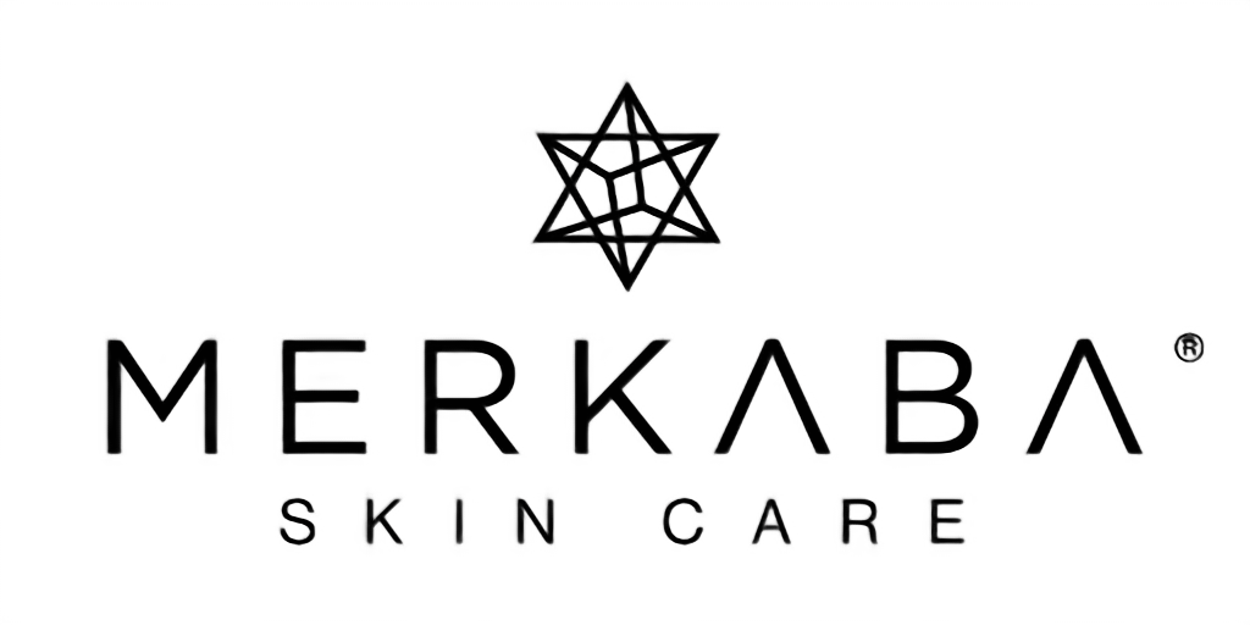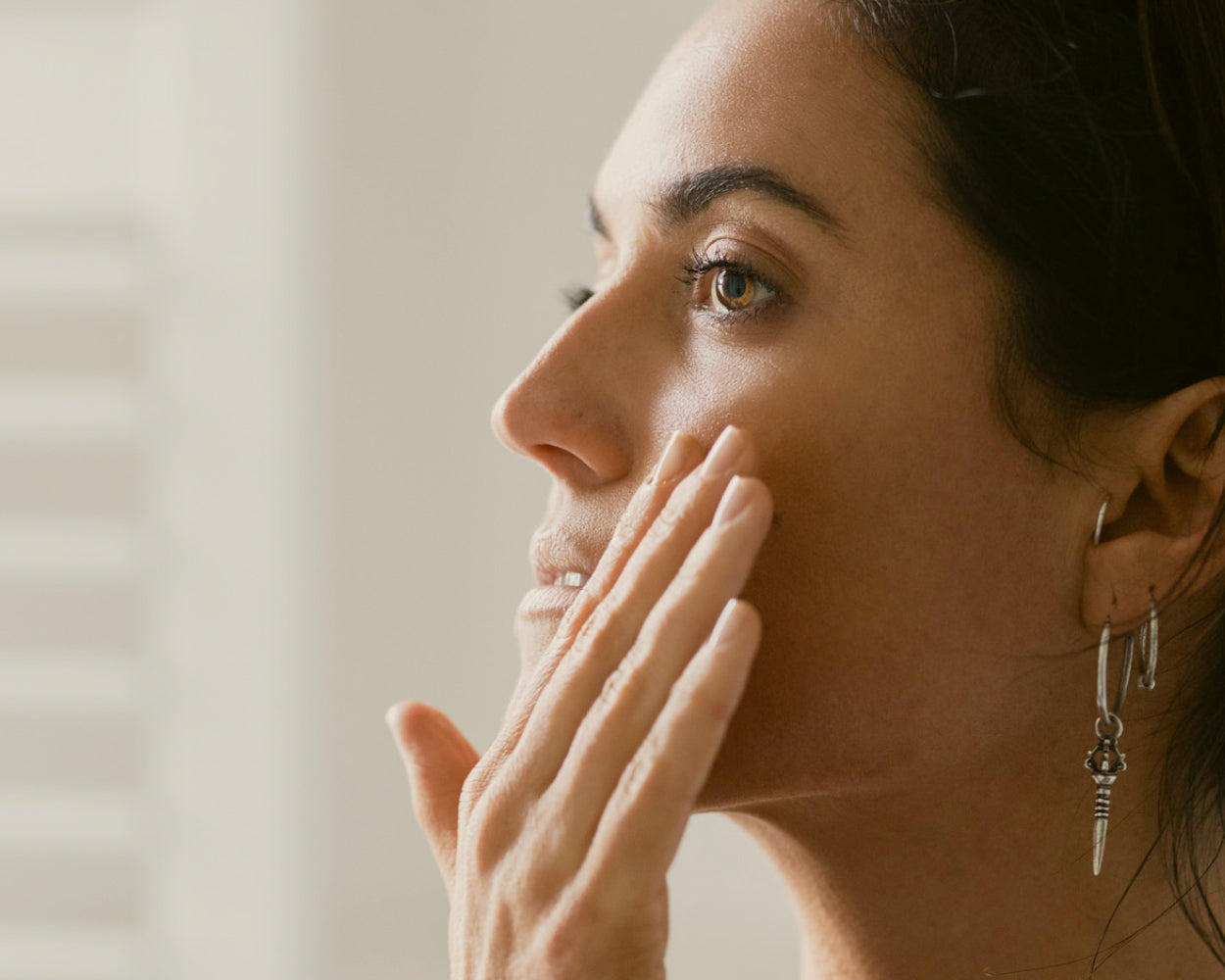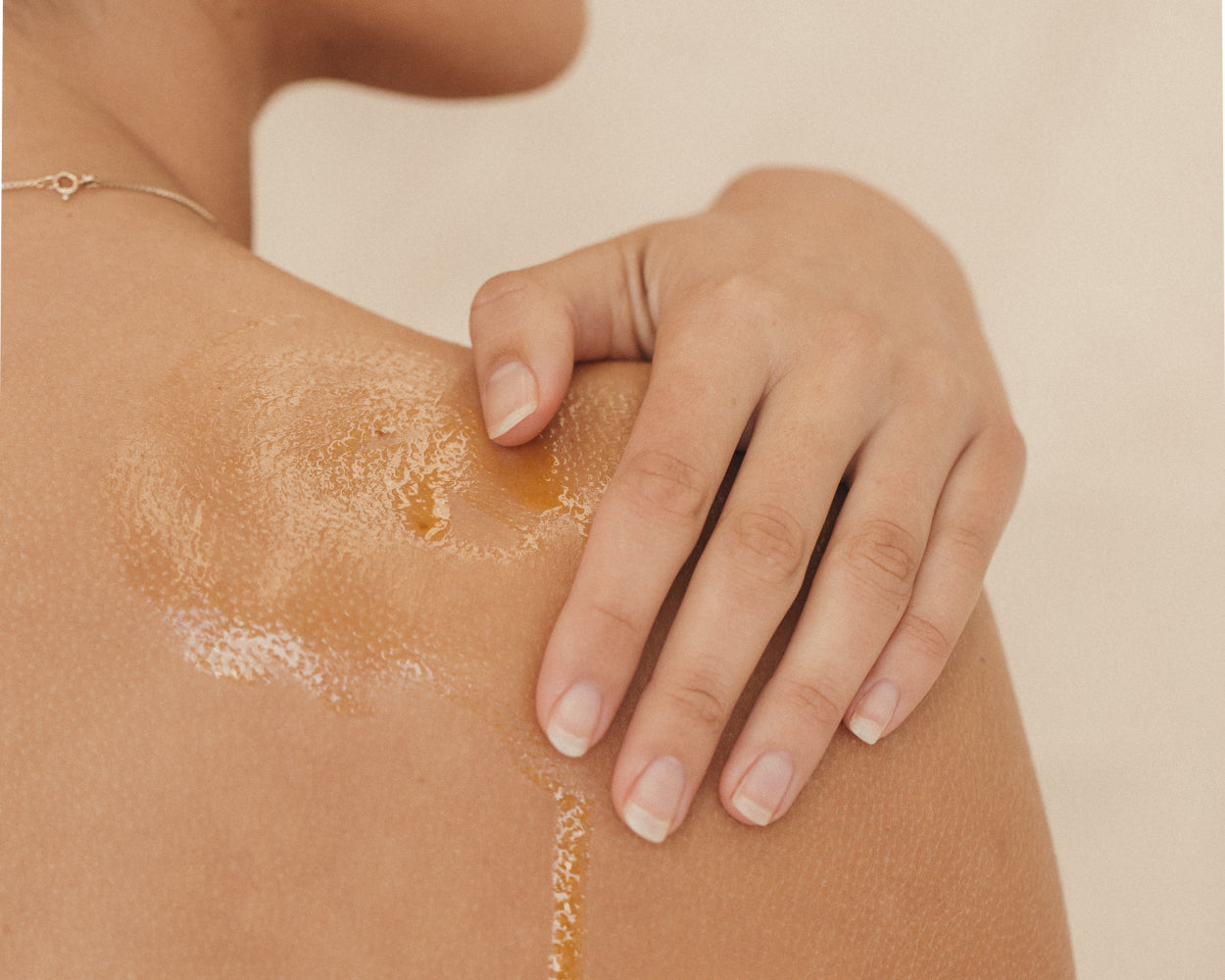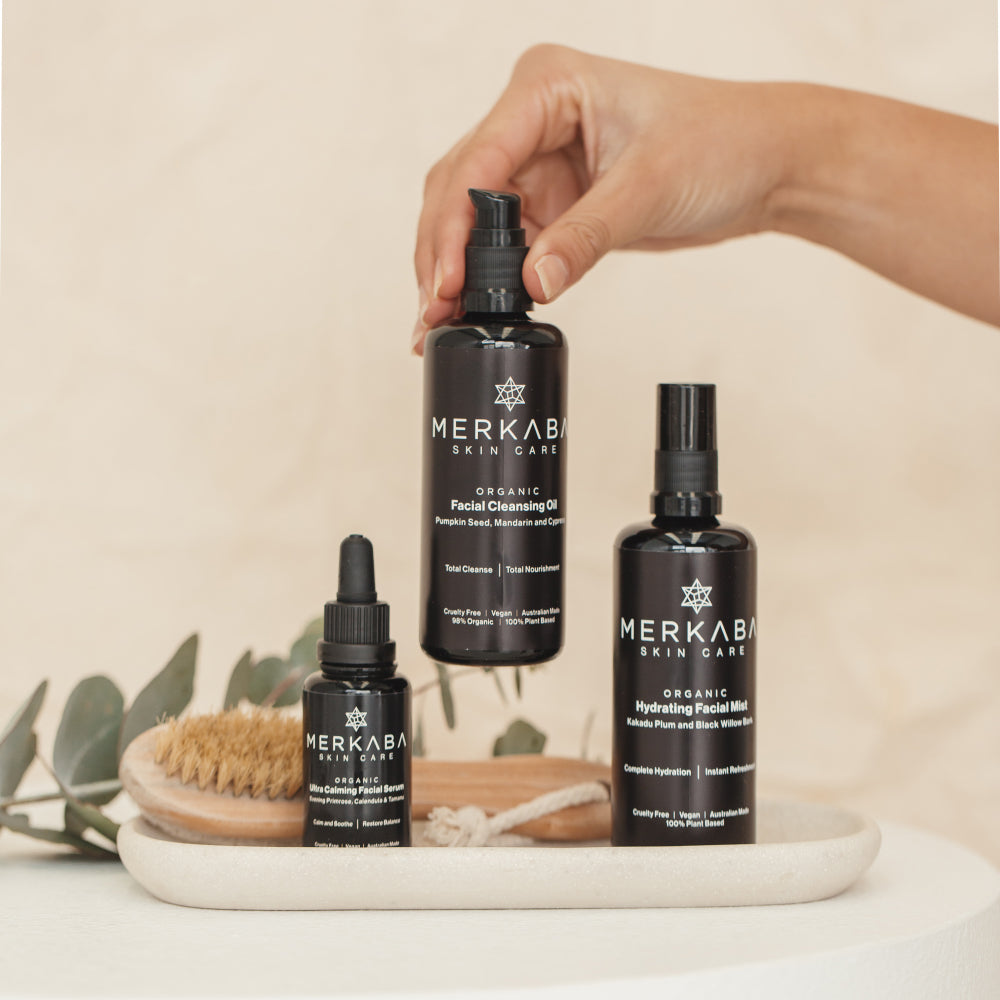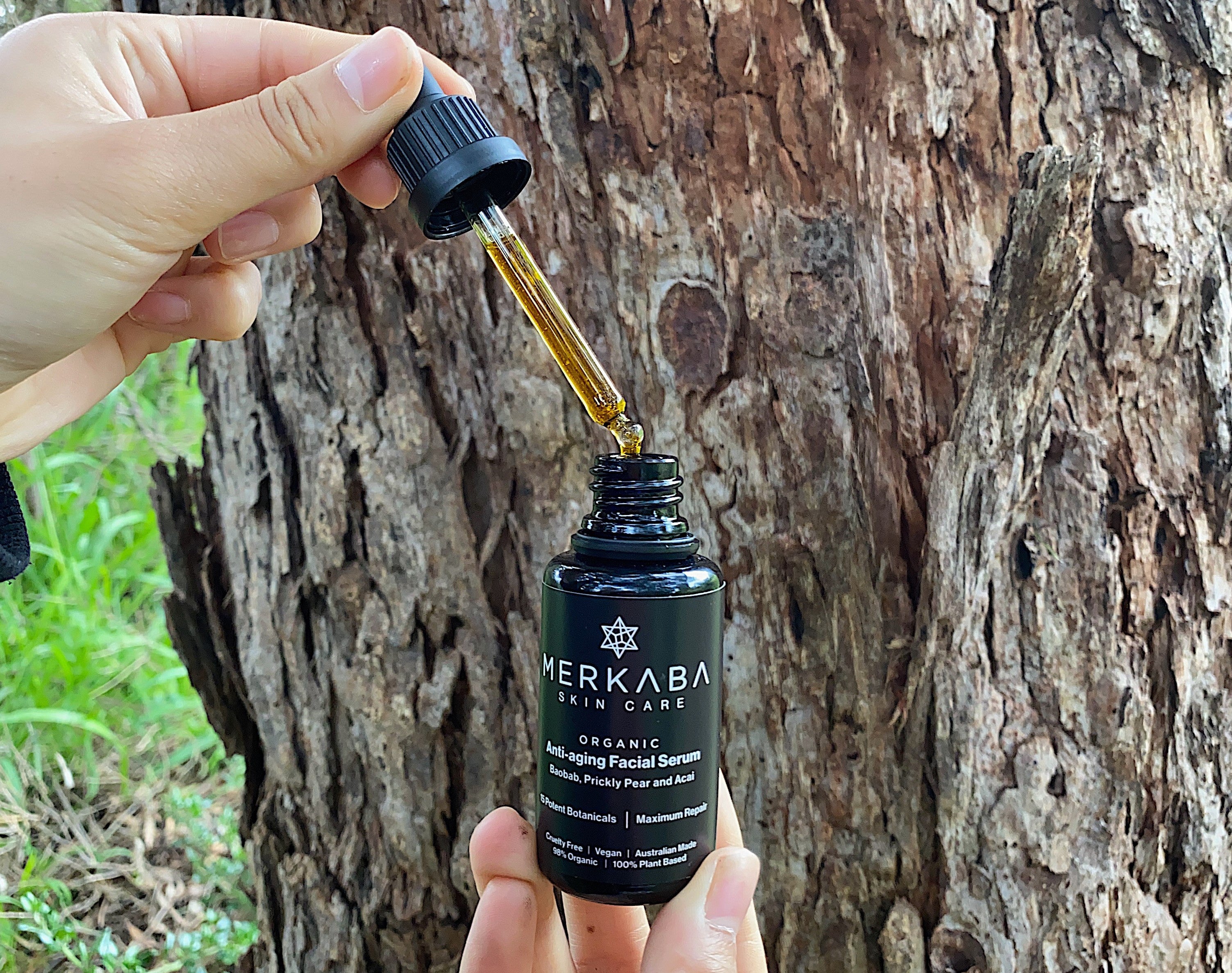
10 Steps to Healthy Glowing Skin
HOW TO ACHIEVE RADIANT SKIN NATURALLY

1. Hydrate skin from the inside out.
Water is the fluid of life and our skin cells are composed of 64% water. If our water intake is insufficient, our skin is likely to become dry, tight and flaky due to an overall lack of cell flexibility. It then becomes more prone to wrinkling, resulting in premature aging.
2. Adopt a skincare ritual using natural plant-based products.
Our bodies are inseparable from nature. Given this wisdom it's important to allow the life forces of the elements, the sun, the earth, fresh air and water to revive our skin’s self-repair.
These botanical carrier oils, actives, extracts, and essential oils work synergistically with our cells. In doing so, they stimulate circulation, enhance immunity, and reduce the destruction of collagen.
Be aware of skincare products containing harsh chemicals, parabens, sulphates, phthalates, artificial preservatives and fragrances as these ingredients often disrupt hormones and in doing so reduce cellular rejuvenation.
A mindful ritual of cleansing, hydrating, and moisturising with plant-based products such as our 3 Step Ritual Pack engages you with the elements and rejuvenates your body, skin and soul.
Note that exfoliation to remove layers of dead skin is also important once or twice a week. This can be as simple as a homemade paste using ground up walnut in a little yoghurt. The antioxidants present in the walnuts will further defend against environmental toxins and promote radiant skin.

Cleansing with an oil based cleanser, particularly one with added nutrient dense carrier oils, enriched with essential fatty acids, will assist to unblock pores, gently exfoliate and naturally balance the sebum levels in the skin.
4. Wise interaction with the sun.While it is true that our skin can be very vulnerable to sunburn, it’s important to note that wise sun exposure with its subsequent production of Vitamin D is necessary for optimal cellular health.
The natural rays of the sun encourages the dilatation of the pores of the skin encouraging the production of melanin. This further protects the skin from harmful UV rays.
Slow exposure to early morning and late afternoon sun in the spring is the best way to develop protection as the melanin produced by your body will assist to prevent sunburn in the summer.
Always protect your skin from the harsh elements of midday sun exposure by seeking shade and the use of protective clothing.
If using a SPF, ensure that it’s free of synthetic ingredients, particularly oxybenzone. Many of these ingredients are hazardous to our health as they alter the intelligence of our cells. These toxins have also been known to wash off while swimming, thus damaging our oceans.
Instead look for a natural sunscreen containing ingredients such as zinc oxide and titanium oxide offering a physical barrier rather than a chemical barrier.

Also be aware that some foods such as gluten, grains and dairy may produce a negative response in some individuals which may often present in the form of skin conditions such as acne, rosacea and dermatitis.
6. Include healthy fats in your diet.
Our cell membranes are made up mostly of fat. In the absence of good quality, healthy fats in our diets, our cell membranes become weakened and cannot stay plump and hydrated. Healthy fats such as olive, avocado and macadamia oils, nuts such as pecans, brazil nuts and walnuts, oily fish, flaxseed and saturated fats such as coconut oil, grass fed butter and ghee provide essential fatty acids that fortify cell membranes, keeping your skin supple, elastic and more youthful looking.
Avoid industrially processed fats and seed oils such as margarine, vegetable oils, canola and other fats not produced by nature. These harmful fats cause free radical damage in the body which damages DNA, suppresses immune functions and damages the integrity of the cell membranes even further.
7. Eat a variety of fresh fruits and vegetables.
Fruits and vegetables are abundant in anti-inflammatory and antioxidant compounds that promote optimal skin metabolism and defence against environmental stressors.
Foods such as carrots, sweet potatoes, spinach, blueberries and oranges are high in beta carotene, a nutrient found in plants which is converted to Vitamin A in your body and helps to protect your skin cells from sun exposure.
High levels of Vitamin C can be found in foods such as oranges, broccoli, brussel sprouts, spinach, cabbage, peppers, tomatoes and blueberries. Not only is this essential nutrient a powerful antioxidant, it also stimulates collagen production, the structural protein which strengthens your skin.

8. Physical activity.
The rewards of physical activity extend far beyond losing that extra kilo or developing muscle tone. Any activity which promotes increased blood circulation delivers oxygen, and essential nutrients to all of your organs, including your skin. This improves cellular metabolism, helps to defend against environmental stressors and improves the secretion of human growth hormone which is an excellent way to increase the natural production of collagen.
Physical activity also stimulates the immune system by encouraging the production of white blood cells. This plays an important role in speeding up the healing process of wounds, blemishes and other skin conditions.
Also, physical activity plays a large role in detoxification as the increased circulation helps to flush toxins from the body and rejuvenate the skin.
Any movement that results in increased blood flow will have a positive effect, whether it’s a brisk walk, a yoga routine or pumping weights at the gym. Doing an activity that you love can have a positive effect on your mood, lower stress levels and be an avenue for personal connection.
9. Stress management.
Our skin is a major target of the stress response and it’s the way we respond to the daily pressures in our lives that determines whether or not they actually become our stressors. If these stressors go unmanaged, the result is a relentless increase in the stress hormones, adrenalin and cortisol which often leads to skin conditions such as rosacea, acne, eczema and psoriasis.
It’s often impossible to avoid stress altogether, so the key is defining what stress really is for you and taking steps to decrease the intensity of the stress response.
Practices that bring awareness and mindfulness can bring us more into alignment with ourselves and the whole of existence. They are designed to quiet the busy mind, relax the body and bring a sense of peace. Meditation, yoga, breathwork, journaling, qi gong, and gratitude are a few examples of simple practices that can reduce stress overall and bring more joy into your life.

10. Restorative sleep.
During your deepest, most restorative sleep, known as the Delta cycle, your mind and body switches to a mode of active regeneration and repair. The aim should be 7 to 9 hours of good quality sleep each night as this is in direct correlation to the quality of your skin. During restorative sleep the following happens:
- Cell mitosis is increased. This is the simple duplication of a cell, a process that occurs in order to renew and repair the skin.
- Reduction of the stress hormone, cortisol which helps to repair the damage caused by daytime environmental stressors.
- Increased levels of the sleep hormone, melatonin which stimulates your body’s natural production of antioxidants. This provides defence against free radical damage, helping to repair and restore your skin.
- The release of the human growth hormone which repairs and regenerates skin cells.
- Strengthens the immune system by reducing inflammation, thus helping to calm skin conditions such as acne, rosacea and eczema.
To ensure a great night’s sleep, create a relaxing, dark environment. Reduce caffeine consumption, artificial light and the use of electronic devices prior to sleep, establish a regular routine, block out distracting noise and find a comfortable sleep temperature.
